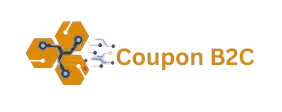Doctors frequently face profound ethical dilemmas when providing treatment and considering operations. These can involve end-of-life care decisions, resource allocation, patient autonomy, and the balance between medical intervention and quality of life. Navigating these complex choices requires careful consideration, adherence to professional codes of conduct, and often multidisciplinary discussions with colleagues, patients, and their families. Ethical decision-making is a cornerstone of responsible medical practice, ensuring that care is delivered not just effectively, but also morally and compassionately, upholding the highest standards of professional integrity.
The Future of Medicine: AI and Revolutionizing Healing
The future of medicine for doctors is being shaped by artificial intelligence (AI) and the promise of personalized care. AI is poised to assist with diagnostics, analyze vast datasets for treatment whatsapp data recommendations, and even enhance the precision of operations. Personalized medicine, leveraging genetic information and individual patient data, aims to tailor treatments for maximum effectiveness and minimal side effects. While technology offers incredible potential, the human element of empathy, judgment, and direct patient interaction will remain indispensable, ensuring a balanced and patient-centered evolution of healthcare.
Precision Medicine: Tailoring Therapies to Individuals
Precision medicine is at the forefront of revolutionizing newlywed’s vacation ends in fatal shark encounter treatment, tailoring therapies to individual patients based on their unique genetic makeup, lifestyle, and environment. This approach moves beyond a “one-size-fits-all” model. Using advanced diagnostics to identify specific biomarkers. That can predict a patient’s response to particular drugs or interventions. For conditions like cancer, precision medicine allows doctors to select treatments that target specific genetic mutations within a tumor, leading to more effective outcomes and fewer side effects. This highly personalized approach promises a future where medicine is truly bespoke, optimizing health outcomes.
Immunotherapy: Harnessing the Body’s Own Defenses
Immunotherapy represents a groundbreaking advance in malaysia data treatment, particularly for cancer, by harnessing the body’s own immune defenses. Instead of directly attacking cancer cells, these therapies stimulate. Or restore the immune system’s ability to recognize and destroy diseased cells. This can lead to more durable responses and fewer side effects compared to traditional chemotherapy. Doctors are using various forms of immunotherapy, from checkpoint inhibitors to CAR T-cell therapy. Offer new hope for patients with previously untreatable conditions. Showcasing the body’s incredible capacity for healing when properly supported.
